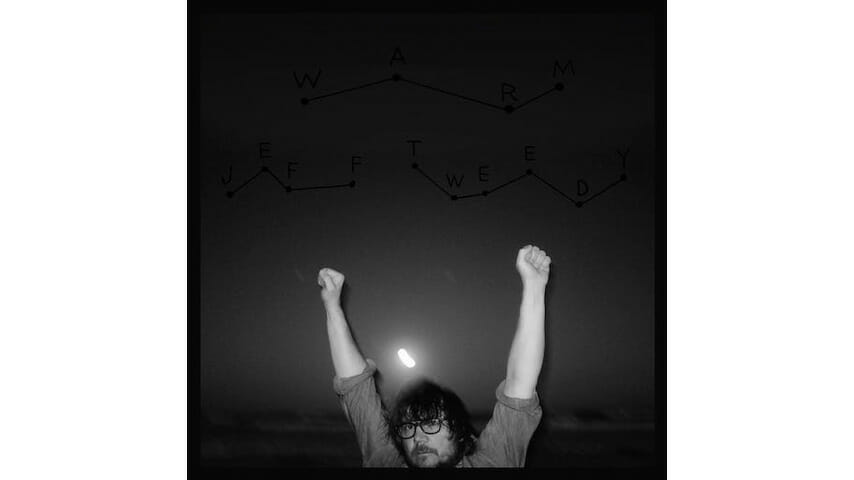Jeff Tweedy: WARM

In his new memoir Let’s Go (So We Can Get Back), Jeff Tweedy describes the songs on his first proper solo album of original material as “some of the most direct, personal and autobiographical that I’ve ever written.” That’s quite a statement from a guy who has spent the past 25 or so years working out his innermost feelings through music. Still, the 11 tunes on WARM do feel less oblique than much of Tweedy’s work, the bulk of which has come fronting Wilco.
If he’s more direct, he’s also less outwardly demonstrative. The jagged edges and scalding musical eruptions of Tweedy’s younger selves have boiled down into something quieter and more insular. His instinct for melody has grown more nuanced, with parts that seep in slowly rather than popping in your face like a string of firecrackers. It changes the impact of his words: dark sentiments lurk within a lot of Wilco songs, but you often have to go looking for them through diversionary layers of sound. Tweedy’s latter-day material exerts a different kind of pull, drawing listeners in close for the confidences he offers in a murmur unobstructed by the musical arrangements.
These songs are also empathetic in a way that hasn’t always been true of Tweedy’s music. “Don’t Forget” sounds like a loving reminder to his sons, with genial life advice (“don’t forget to brush your teeth”) and an allusion to the grief they shared when Tweedy’s father died a few years ago. On “Having Been Is No Way to Be,” Tweedy is dismissive of the cliché that his music was better before he went to rehab, and that regardless, he’s fulfilling a promise to his loved ones by staying alive (and, presumably, sober). Opener “Bombs Above” is more enigmatic, with references to complicity in conflict and the nature of suffering, but he sings about faith of a sort on “Let’s Go Rain,” which includes a playful reference to occasional collaborator Scott McCaughey, the big-hearted frontman of the Minus 5.
-

-

-

-

-

-

-

-

-

-

-

-

-

-

-

-

-

-

-

-

-

-

-

-

-

-

-

-

-

-

-

-

-

-

-

-

-

-

-

-








































